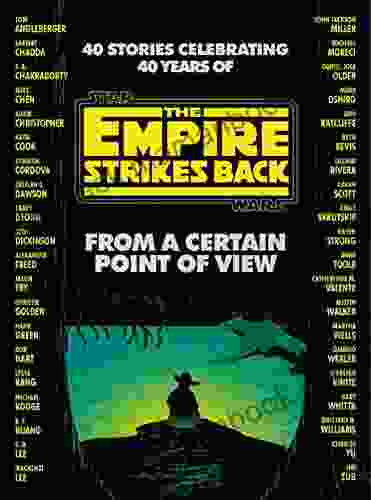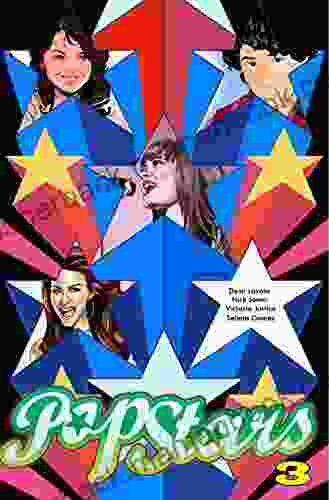Negotiating Spanish Music in Paris, 1908-1929: Currents in Latin American and Spanish Modernity

In the early 20th century, Paris was a hub of cultural exchange between Latin America and Europe. Spanish musicians, composers, and performers flocked to the French capital, eager to share their music with a new audience. However, the Parisian cultural landscape was not always welcoming to foreign artists. Spanish music was often seen as exotic and primitive, and Spanish musicians faced prejudice and discrimination.
5 out of 5
| Language | : | English |
| File size | : | 1470 KB |
| Text-to-Speech | : | Enabled |
| Screen Reader | : | Supported |
| Enhanced typesetting | : | Enabled |
| Print length | : | 294 pages |
| Lending | : | Enabled |
Despite these challenges, Spanish musicians were able to negotiate their way into the Parisian cultural scene. They did this by adapting their music to suit the tastes of French audiences, while also asserting their own cultural identity. They also formed alliances with French musicians and intellectuals, who helped them to promote their music in Paris.
One of the most important institutions in the promotion of Spanish music in Paris was the Schola Cantorum. Founded in 1894, the Schola was a music school that specialized in the performance of early music. However, the Schola also had a strong interest in contemporary music, and it was one of the first institutions in Paris to embrace Spanish music.
In 1909, the Schola Cantorum presented a series of concerts of Spanish music, which featured performances by some of the most important Spanish musicians of the day, including Manuel de Falla, Isaac Albéniz, and Enrique Granados. These concerts were a great success, and they helped to introduce Spanish music to a wider audience in Paris.
Another important institution in the promotion of Spanish music in Paris was the Théâtre des Champs-Élysées. Founded in 1913, the Théâtre des Champs-Élysées was a prestigious concert hall that hosted performances by some of the most famous musicians in the world. In 1919, the Théâtre des Champs-Élysées presented a series of concerts of Spanish music, which featured performances by Manuel de Falla, Igor Stravinsky, and Darius Milhaud.
These concerts were a great success, and they helped to cement the reputation of Spanish music in Paris. They also helped to create a new audience for Spanish music, which included not only French audiences but also audiences from all over the world.
The negotiation of Spanish music in Paris between 1908 and 1929 was a complex and multifaceted process. Spanish musicians faced prejudice and discrimination, but they were also able to adapt their music to suit the tastes of French audiences and assert their own cultural identity. With the help of institutions such as the Schola Cantorum and the Théâtre des Champs-Élysées, Spanish music became a vital part of the Parisian cultural landscape and had a significant impact on the development of Latin American and Spanish musical modernism.
The negotiation of Spanish music in Paris between 1908 and 1929 was a fascinating and important chapter in the history of cultural exchange between Latin America and Europe. Spanish musicians were able to overcome prejudice and discrimination to introduce their music to a new audience in Paris, and they played a vital role in the development of Latin American and Spanish musical modernism.
5 out of 5
| Language | : | English |
| File size | : | 1470 KB |
| Text-to-Speech | : | Enabled |
| Screen Reader | : | Supported |
| Enhanced typesetting | : | Enabled |
| Print length | : | 294 pages |
| Lending | : | Enabled |
Do you want to contribute by writing guest posts on this blog?
Please contact us and send us a resume of previous articles that you have written.
 Top Book
Top Book Novel
Novel Fiction
Fiction Nonfiction
Nonfiction Literature
Literature Paperback
Paperback Hardcover
Hardcover E-book
E-book Audiobook
Audiobook Bestseller
Bestseller Classic
Classic Mystery
Mystery Thriller
Thriller Romance
Romance Fantasy
Fantasy Science Fiction
Science Fiction Biography
Biography Memoir
Memoir Autobiography
Autobiography Poetry
Poetry Drama
Drama Historical Fiction
Historical Fiction Self-help
Self-help Young Adult
Young Adult Childrens Books
Childrens Books Graphic Novel
Graphic Novel Anthology
Anthology Series
Series Encyclopedia
Encyclopedia Reference
Reference Guidebook
Guidebook Textbook
Textbook Workbook
Workbook Journal
Journal Diary
Diary Manuscript
Manuscript Folio
Folio Pulp Fiction
Pulp Fiction Short Stories
Short Stories Fairy Tales
Fairy Tales Fables
Fables Mythology
Mythology Philosophy
Philosophy Religion
Religion Spirituality
Spirituality Essays
Essays Critique
Critique Commentary
Commentary Glossary
Glossary Bibliography
Bibliography Index
Index Table of Contents
Table of Contents Preface
Preface Introduction
Introduction Foreword
Foreword Afterword
Afterword Appendices
Appendices Annotations
Annotations Footnotes
Footnotes Epilogue
Epilogue Prologue
Prologue Robert Andrew Parker
Robert Andrew Parker Kim Pearson
Kim Pearson John Hagensen
John Hagensen Larry Hite
Larry Hite Olivia Gatwood
Olivia Gatwood H P Gentileschi
H P Gentileschi Toks Insider
Toks Insider Harriet Caves
Harriet Caves Daria Shigaeva
Daria Shigaeva Thomas W Phelan
Thomas W Phelan Sarah Stewart Holland
Sarah Stewart Holland Guy Blaze
Guy Blaze Robert B Gordon
Robert B Gordon Steve Niles
Steve Niles Matthew Mcconaughey
Matthew Mcconaughey Bliss Perry
Bliss Perry Sara Rosett
Sara Rosett Gary Kuchar
Gary Kuchar Leslie Schrock
Leslie Schrock Nicholas Popowich
Nicholas Popowich
Light bulbAdvertise smarter! Our strategic ad space ensures maximum exposure. Reserve your spot today!

 Rex HayesHow to Build Your Own Tiny House: A Step-by-Step Guide to Creating Your Dream...
Rex HayesHow to Build Your Own Tiny House: A Step-by-Step Guide to Creating Your Dream...
 Gabriel Garcia MarquezThe Empire Strikes Back: A Cinematic Masterpiece That Changed Star Wars...
Gabriel Garcia MarquezThe Empire Strikes Back: A Cinematic Masterpiece That Changed Star Wars... Wade CoxFollow ·5.2k
Wade CoxFollow ·5.2k Miguel de CervantesFollow ·6.5k
Miguel de CervantesFollow ·6.5k Jonathan HayesFollow ·8k
Jonathan HayesFollow ·8k Easton PowellFollow ·7k
Easton PowellFollow ·7k Graham BlairFollow ·6.1k
Graham BlairFollow ·6.1k Alfred RossFollow ·11.6k
Alfred RossFollow ·11.6k Vince HayesFollow ·17.2k
Vince HayesFollow ·17.2k Darnell MitchellFollow ·3.4k
Darnell MitchellFollow ·3.4k

 Jeremy Mitchell
Jeremy MitchellPlay We Now On Christmas Violin Christmas: A Heartfelt...
Play We Now On...

 Terry Bell
Terry BellTales from the Road: Confessions of an Atlanta Uber...
In the vibrant...

 Ervin Bell
Ervin BellThe French Admiral: A Gripping Naval Adventure with Alan...
In the vast expanse of...

 Henry David Thoreau
Henry David ThoreauCrochet Cozy Afghan Patterns: Crochet Weekend Afghan...
to Crochet...

 Orson Scott Card
Orson Scott CardAn Archaeological View Of The Industrialization Of North...
The industrialization of North America was a...

 Josh Carter
Josh CarterClipboard Christmas Skits by Tom Spence: A Festive...
A Christmas...
5 out of 5
| Language | : | English |
| File size | : | 1470 KB |
| Text-to-Speech | : | Enabled |
| Screen Reader | : | Supported |
| Enhanced typesetting | : | Enabled |
| Print length | : | 294 pages |
| Lending | : | Enabled |








